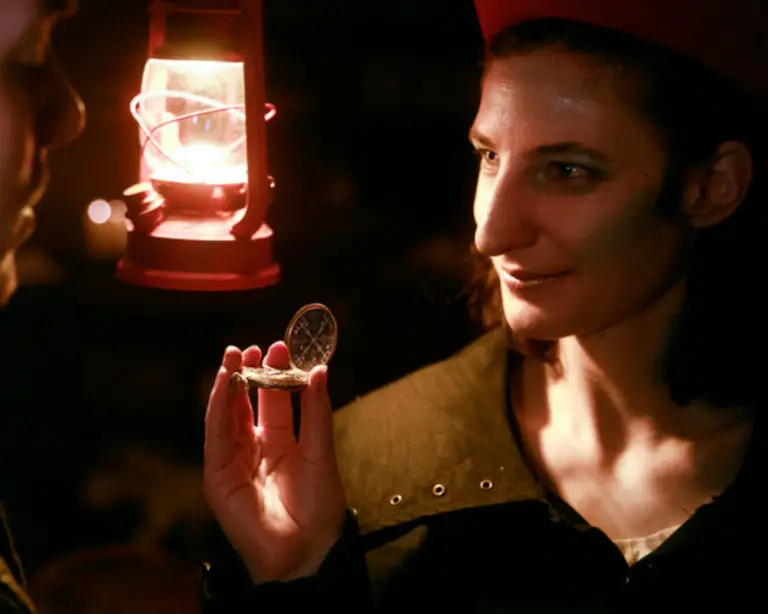Chicago’s immersive scene is one to watch–with notable experiences in the realm of horror, puppetry, and now artistic intimacy. From immersive productions to themed dinners, Chicago’s Birch House aims to remove the boundaries that typically separate an audience from performers. Birch House, founded by Lauren N. Fields and Janie Killips, actively works on cultivating intimate and versatile experiences through their experiences and empowerment of new artists. Immersed got a chance to chat with Fields, Killips, and producer Sarah McElroy about their beginnings, past projects and what the future has in store for Birch House.
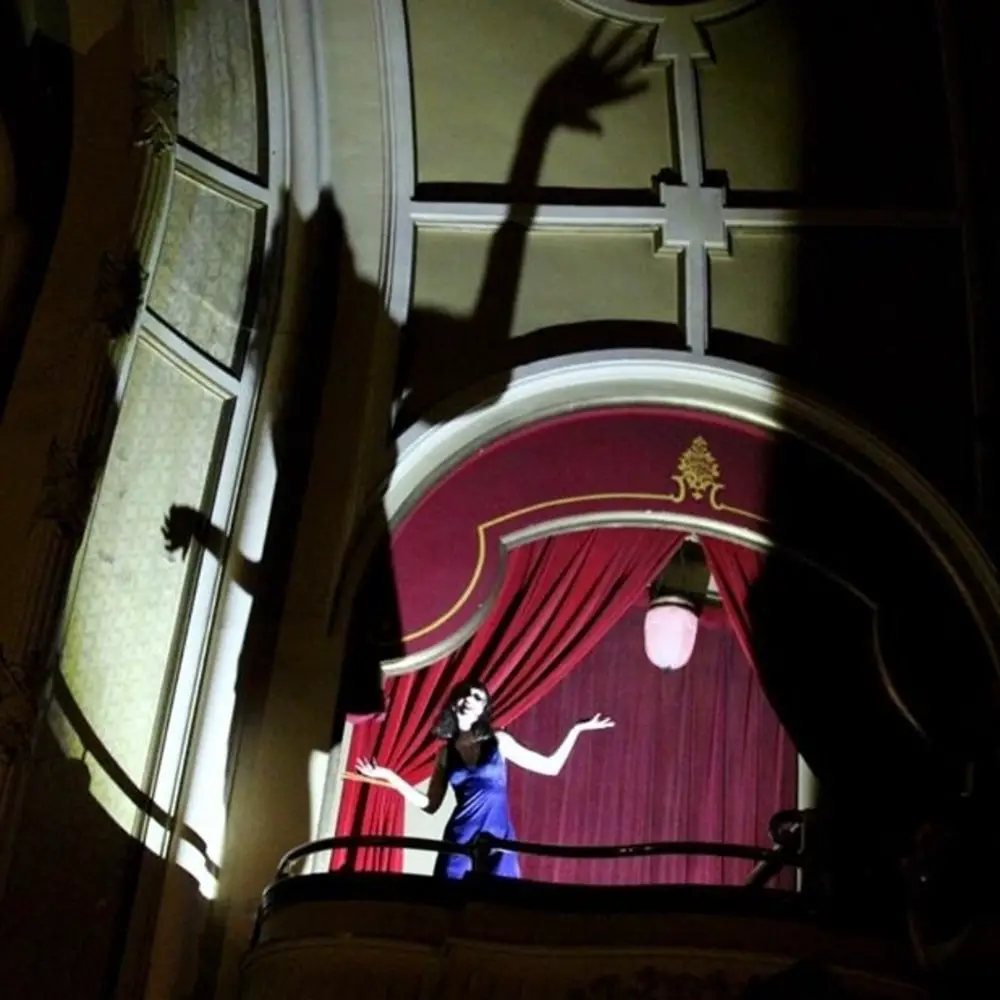
Genesis
Killips describes Birch House as “an Arts Company focused on creating new immersive works while supporting its artists with residency and food.” It began a few years ago, “after Lauren and I graduated, we were looking for people to keep us accountable for our work. We started meeting weekly, just the two of us, reviewing what we accomplished during the week and then assigning ourselves homework for the coming week. That form really pushed both of us to create a lot during that year and we thought that others might benefit as well. After we moved into the Birch House space, we felt we had an opportunity and an obligation to share this with our fellow collaborators. One of the most important things about being an artist is showing up for yourself. This was a way to encourage people to do that.”
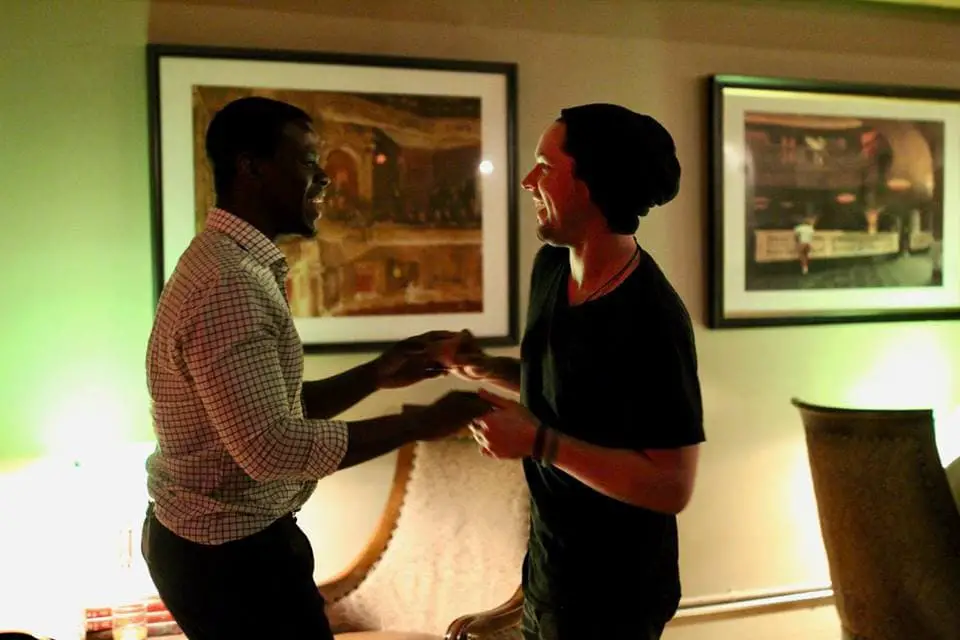
When they started out, Fields explains, “we both studied playwriting and immersive theatre under Dean Corrin (who is now Experience Design Consultant in our ensemble) at The Theatre School at DePaul and I also studied directing. So when we started talking about immersive, we came at it from that lens. We always joke that Janie is a playwright who is kind of a director, and I am a director who is kind of a playwright. We had both seen a lot of movement- and dance-based experiences, and we wanted to see what would happen if we approached immersive creation with a focus on text. I believe that has become one of the defining features of our work.”
Even with a focus on the script-based narrative, Birch House uses their trusted stable of actors to expand on that text and influence the narrative during the rehearsal process. Fields continues, “We often rewrite pieces based on what the actors bring into the rehearsal room and we also use devising as a tool for building our experiences. We try to teach our actors the world of the play so well that no matter what the audience throws at them they can respond to it in character, which makes the experience feel very honest and organic for the audience.”
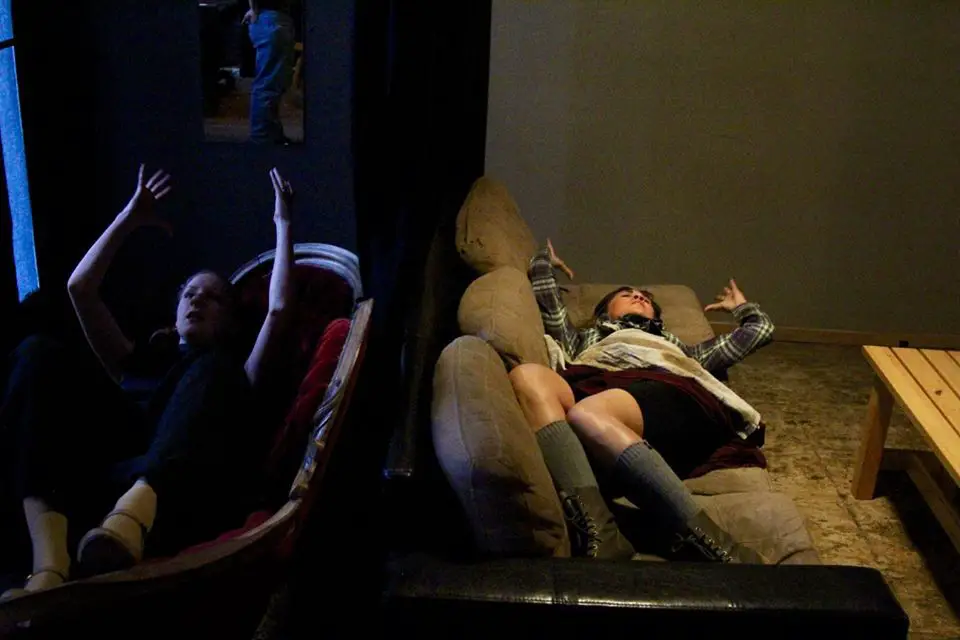
Birch House’s Artist Residence is built on the idea of supporting fellow immersive creators and increasing the potential for collaboration. Since Fields and Killips felt isolated when starting out in the industry, they want to see the immersive community expand and grow as a whole. Seeing the community blossom “is exciting for us because a.) We love experiencing it as audience members, and b.) We love meeting and collaborating with other immersive artists in the city. We really believe that the immersive community as a whole will only thrive with everyone supporting each other,” Fields says.
Variety
From horror (Dark Day) to a puzzle show (The Missing) to a Valentine’s Day experience (Lonely Hearts) to a period drama (Cursed), Birch House events also vary in size and scale. Fields elaborates: “The Missing and Lonely Hearts were both very small and intimate. The Missing was ‘an hour of detailed detective work’ that was set in someone’s basement after the town curfew, so we built that experience to feel very close and claustrophobic, because we wanted the audience to feel like they were sneaking in somewhere and hiding out. With Lonely Hearts we wanted our audience members to feel like they were just interacting with people they might meet in a bar on Valentine’s Day, so we staged it in a very small bar and put them in mini-experiences for one and for two to essentially make them feel like they were speed dating the cast. Dark Day and Cursed are both much larger experiences, with multiple tracks and timelines, so they necessitated larger spaces to tell their stories.”
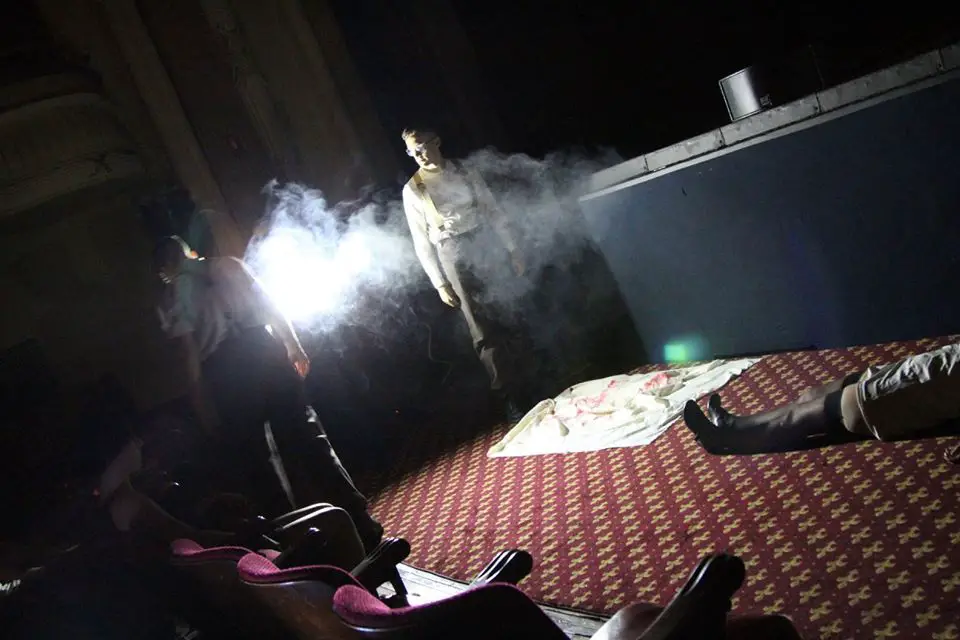
While their events appear to be very different on the surface, they are alike in their desire to transport the audience somewhere new, outside of the here-and-now. “Even if the world is very similar to the one we live in,” Fields says, “we find ways to make it feel otherworldly. Another trait you will always find in our work is intimate moments for the audience and performers to share together. It’s those moments that the audience members feel are just for them that we love the most.”
Birch House allows the story and location to dictate the format of the experiences, whether it is voyeuristic or reliant upon the audience to progress. “For example, the space for Dark Day was so large and winding and dark that we insisted the audience follow one character the entire experience for their safety. Cursed is much more free-form.” Fields illustrates: “The audience is welcome to experience the story however they like, by following certain characters or investigating certain spaces. Once we are locked into a format we continue to ask ourselves throughout staging what we can do within that style to make the audience feel as active and autonomous as possible.”
Discovery and Intimacy
Writing with a space in mind and letting it guide the narrative, Birch House treats the chosen location of their plays as its own character. Killips further explains that “We’ve produced shows in a cramped make-shift basement, an intimate bar, and a large theatre complex. The most important thing we’ve learned is that you can’t fight the space. It’s hard to immerse an audience in a space that we’ve tried too hard to transform. But no matter what the size, the thing we always try to include are details that surprise the audience. We want them to be curious, to open drawers, and books, and find things that they are surprised exist. Finding a minute detail that an audience member wasn’t expecting will transport them even further into the world. There is nothing better than truly feeling like you are holding the play in your hand.”
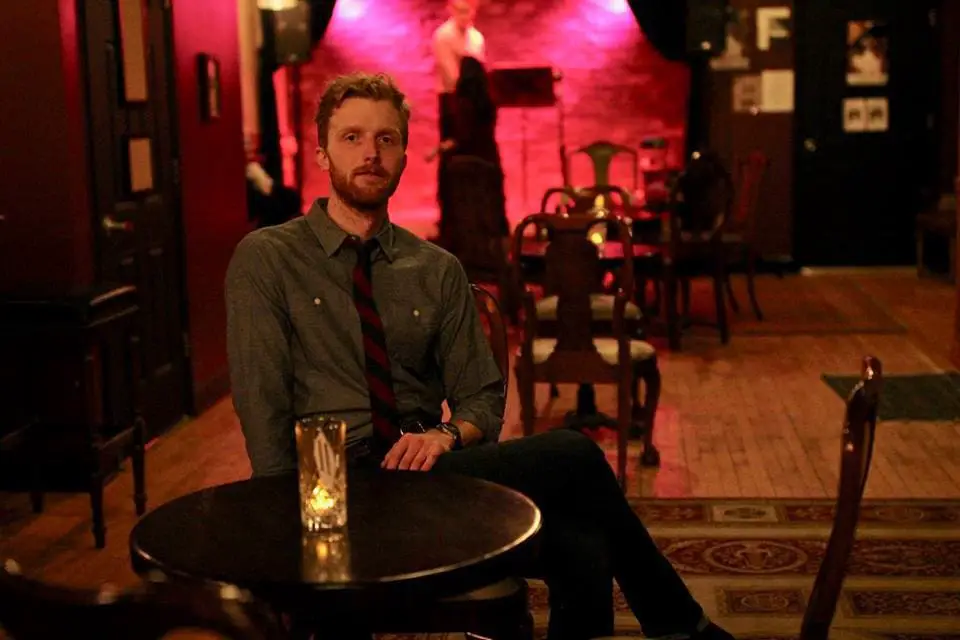
Despite the discovery aspect inherent in their selected locations, Fields, when comparing Birch House to other immersive experiences, says, “we would not consider our work physically intense. Audience members may be touched, but touch is always preceded with an invitation such as intense eye contact, an outstretched hand, or an outright question. We are always interested in seeing what our audiences consider to be ‘emotionally intense,’ because it is so different person to person. We felt like most of the experiences in Lonely Hearts were pretty light-hearted. However, we had audience members at that show moved to tears by things we absolutely didn’t expect. We don’t know what every audience member has experienced or what is weighing on their hearts and minds when they come to us, but we try to bring a lot of intimacy and connection into our work, and sometimes it does resonate for people in a really intense way.”
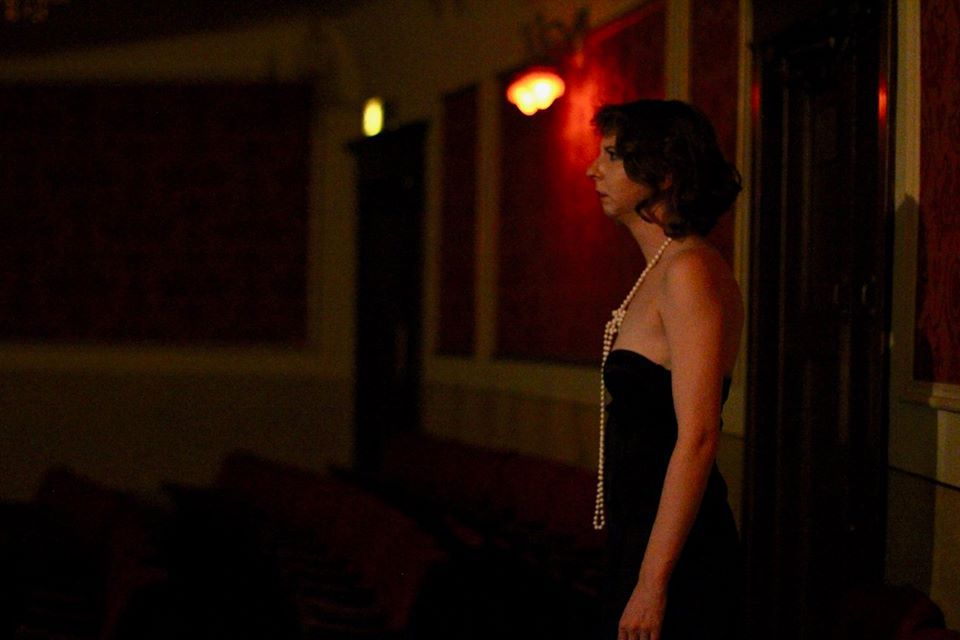
Intimacy, rather than intensity, is a priority for Birch House. “Our goal in creating intimate moments is to make the audience feel seen and heard.” Fields continues, “that feeling is what has resonated with so many immersive fans I’ve talked to: ‘I felt seen.’ We really got to play with this idea in Lonely Hearts because it was our most conversational experience. We encouraged the actors to follow the audience members’ lead instead of trying to push the audience down a certain path, and we found that people really opened up and shared a lot about themselves. It’s very cathartic to have a moment of connection with someone like that, and sometimes it feels safer and more freeing to have it with a stranger.”
Inspirations
How does Birch House create an experience? With “one concept that gets us really excited,” Fields says. “With The Missing it was the idea of this town’s tragedy. For Lonely Hearts it was the question ‘who spends their Valentine’s Day in a bar?’ The inception of Cursed came from an article I read about Deliverance Ministries. Once we’re really excited about a concept we ask, ‘What is the audience’s role in this story?’ Then we start generating material, which doesn’t always look like writing a script, sometimes it’s letters, or sermons, or an origin story. We plant the seed with that original idea and just spend some time letting new things grow from it. Once we have a certain amount of raw material we start to look at it as a whole and figure out the structure, what kind of space it needs, and throughout the whole process we continue to ask ourselves what the audience’s role is and allow that to influence how we tell the story.”
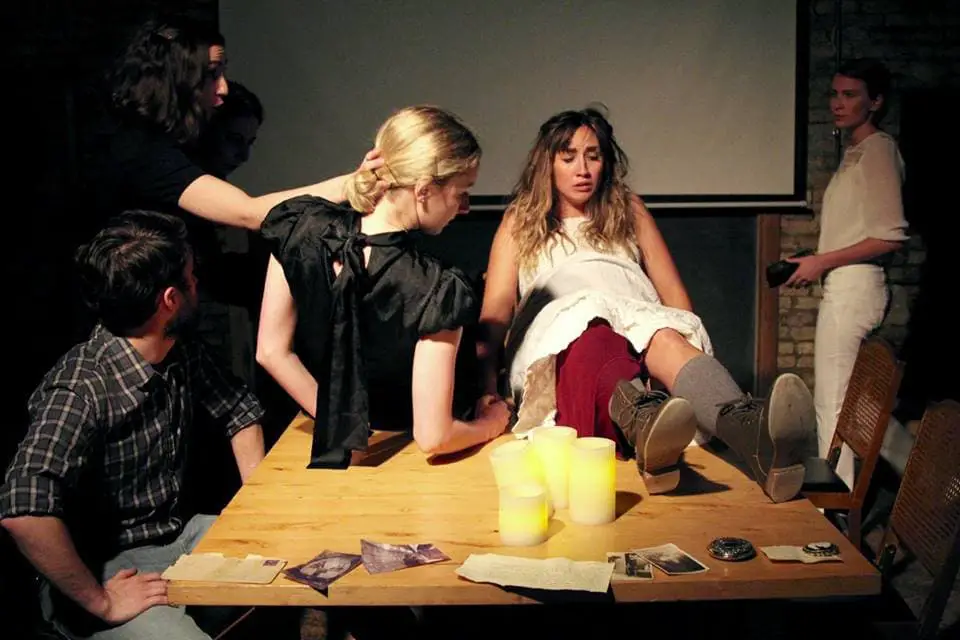
Killips’ passion project, Supper Club, has a slightly different origin story: “I grew up in Wisconsin where supper clubs were common. I loved the idea of throwing parties for our friends on a regular basis. Then Lauren took that idea and ran with it, suggesting we theme the dinners. This then grew into a perfect place to not only connect our artist circles of friends, but also for us to have a sort of laboratory for immersive ideas. We can try different immersive techniques on a very small scale and start incubating ideas from these trials. The food we serve is less of an enhancer than the etiquette that we establish for each meal. We ask our guests to abide by strict etiquette, including a dress code, and most importantly, for them to leave their phones at the door, and to spend a few hours with other artists completely unplugged.”
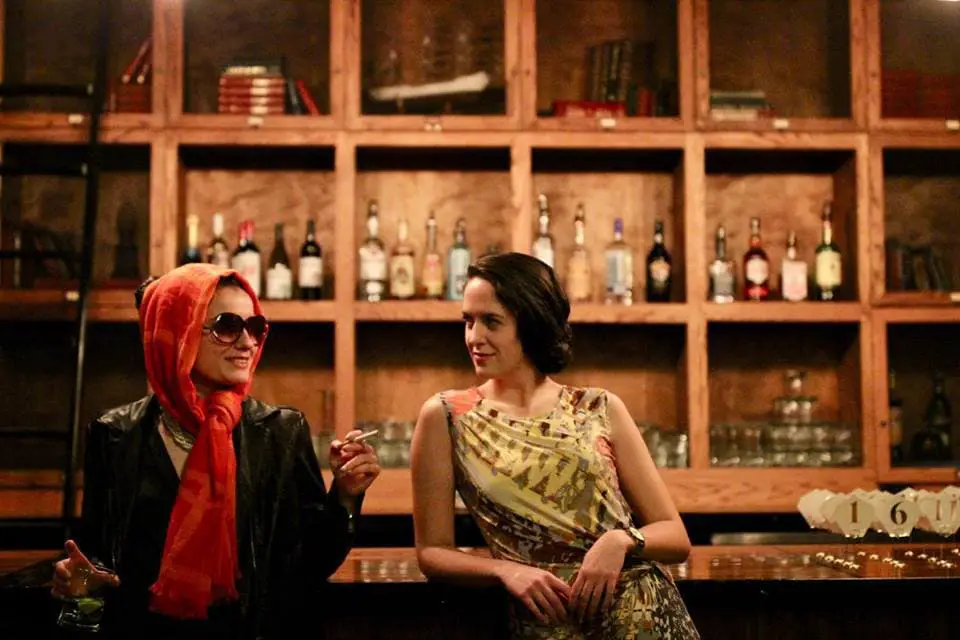
Birch House’s newest production, Cursed: An American Tragedy, “is an immersive epic that explores the story of a family curse shown through three different generations during times of war. The audience can choose to follow various family members within the three different time periods: The Civil War, World War I, and World War II.” Fields describes Cursed as “the largest experience we have created, with 15 actors spread across several time periods. Because it’s such a large project, we decided to do a workshop of it last summer before doing a full production. We had a sold out run of our workshop and got a lot of useful feedback from our audience members. Based on that feedback and the new space, we ended up re-framing the experience and creating a ton of new material for the fall production. I think the biggest lesson we learned from the workshop was that staging something like that was possible, because honestly we weren’t sure of that going in. Now we’re feeling really excited to get into the process and take this big swing.”
The Future of Birch House
Fields looks to the future: “Evan [Neidan of Candle House Collective] has recently joined our team as an intern for Cursed. We met him as an audience member at Lonely Hearts and he came to us with a lot of ideas about how to integrate the audience into the experience before it begins. We are excited to see what comes out of that partnership.”
“Moving forward,” Fields continues, “we’d like to continue exploring different styles of immersive and experimenting with our form. We have a few ideas up on the chalkboard that we’re interested in pursuing in the future. We’re waiting to see what develops and interests us the most after Cursed. We will say that we are planning to do Lonely Hearts again with all-new experiences, so keep your Valentine’s Day open! We’re also currently working on our first commissioned experience for a large non-profit, which is something we are hoping to do more in the future.”
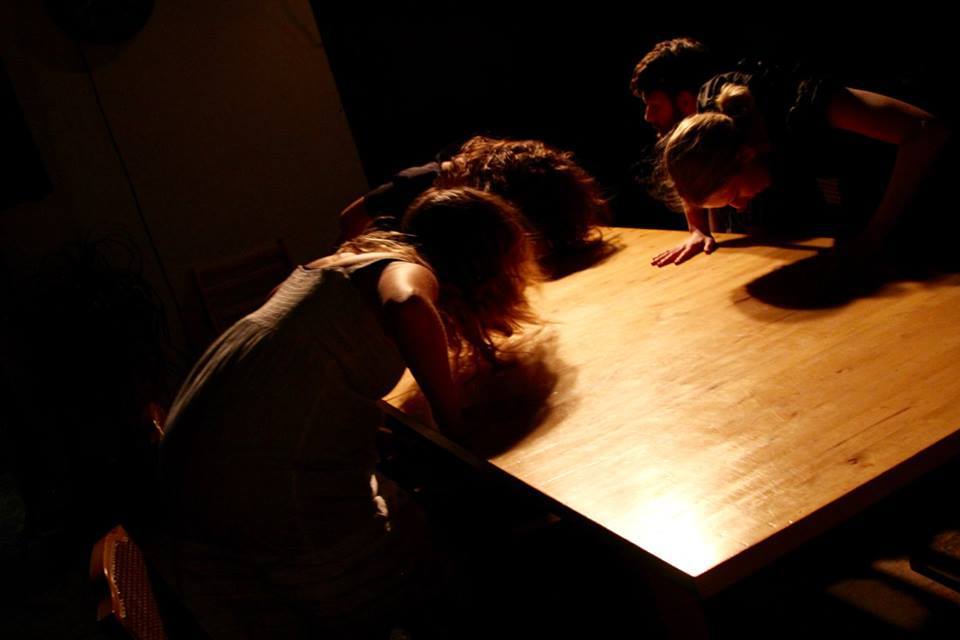
Producer Sarah McElroy chimes in: “The best way to support Cursed is to come out to see the show and bring your friends! As a small, young company, your word of mouth is one of our strongest assets. Something we have always succeeded in is providing a one-of-a-kind experience, if we get you and your friends in the room, we’ll take it from there. And, when we ramp up for our future productions, our audience members vouching for their experience with us helps us to beef up our fundraising campaigns.”
Most importantly, Fields says, “We always want people to walk away from our experiences saying ‘I did that’ instead of ‘I saw that.’ We want them to feel like they are as much a part of the experience as the team that created it and we always want them to find something in the experience that they feel is just for them.”
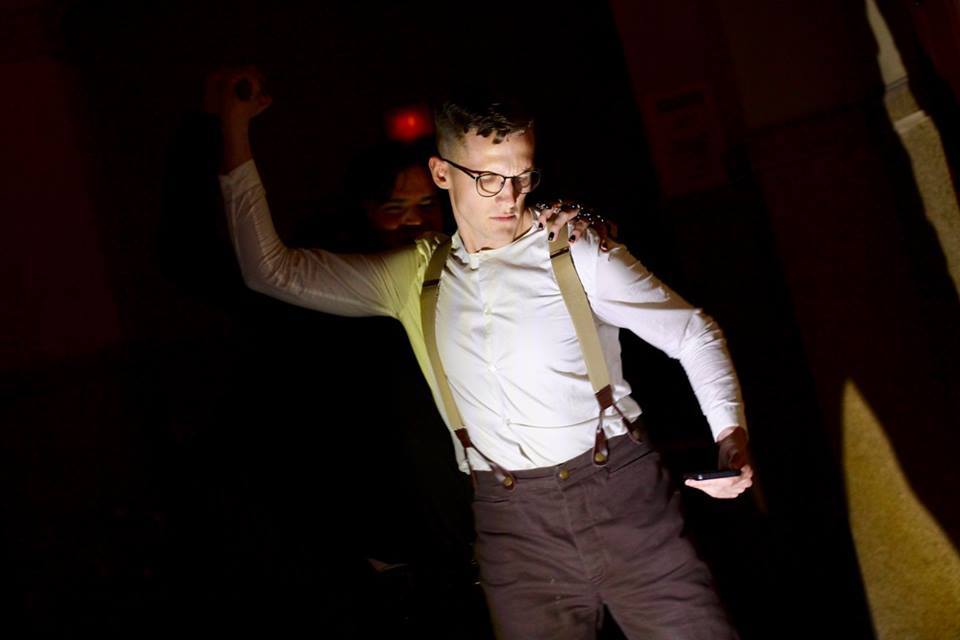
Find out more about Birch House on their website or Facebook page, support the Indiegogo campaign for Cursed, and get your tickets for their November run here.


